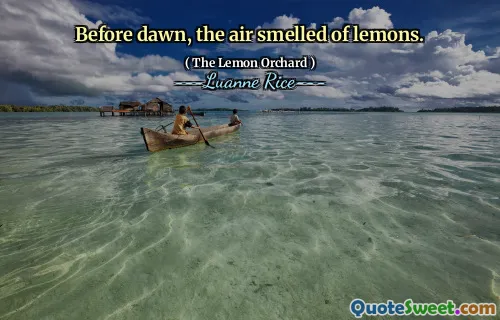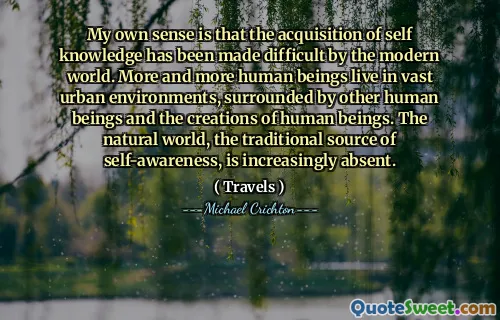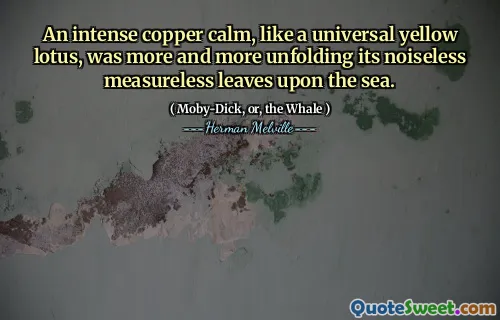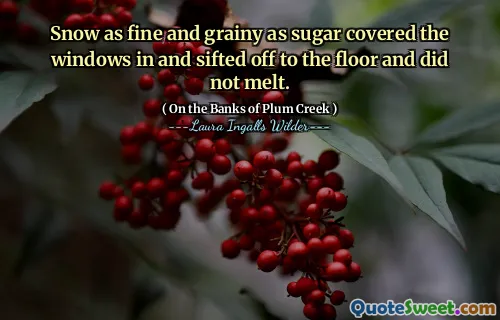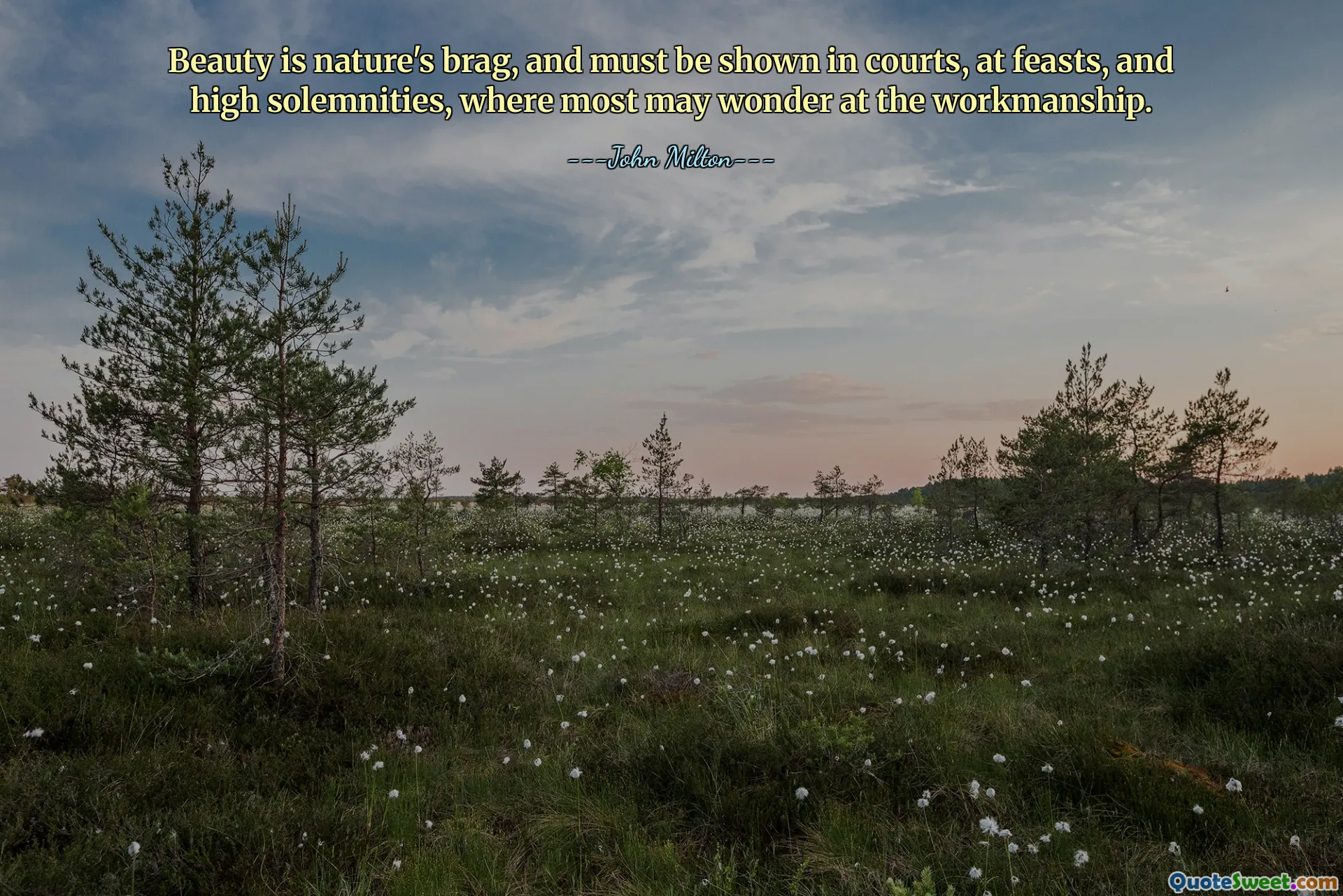
Beauty is nature's brag, and must be shown in courts, at feasts, and high solemnities, where most may wonder at the workmanship.
This quote by John Milton celebrates beauty as a form of nature’s proud expression, a boast of its creative power. He suggests that beauty isn’t to be hidden or diminished but rather prominently displayed in grand and public settings—courts, feasts, and solemn occasions—where the presence of many can appreciate and marvel at the intricate workmanship behind it. In this sense, beauty functions as both an art and a statement, something that commands attention and invites wonder. It highlights the communal aspect of beauty as an experience to be shared rather than a private sentiment. This reflection ties beauty to grandeur and ceremony, implying that recognition and admiration magnify its value. It also prompts the reader to consider how beauty marries natural phenomena with human social constructs, elevating natural forms to symbols of excellence and pride in public life. Beyond its aesthetic dimension, Milton’s phrasing reminds us that beauty is a confident revelation of nature’s skill, meant to inspire awe and recognition in settings where societal and cultural significance converge. It invites us to think about where and how we choose to showcase what we value, framing beauty as a celebration of life’s artistry visible to all.







